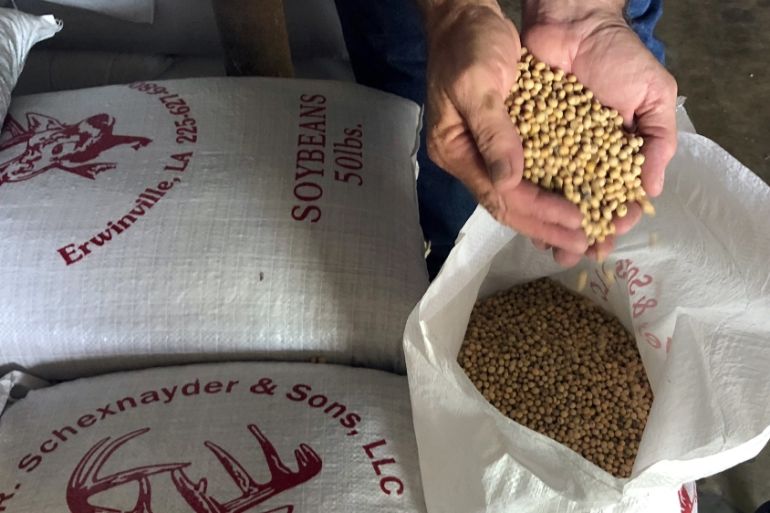Trump administration ‘satisfied’ with China purchases: Adviser
China has increased purchases of commodities as part of its phase one trade deal, Trump adviser says ahead of review.

White House economic adviser Larry Kudlow says the administration of United States President Donald Trump is satisfied with China’s progress in meeting commitments to purchase US goods in a phase one trade deal, signalling that the pact will survive an initial review on Saturday.
China “is now really picking their imports of our commodities – which is a great boon, by the way, for the US agriculture and farm sector,” Kudlow told reporters at the White House on Thursday, recounting US Trade Representative Robert Lighthizer’s comments to Trump.
Keep reading
list of 4 itemsPolitics and convenience drive Mexico to be US’s top trading partner
Will Xi and Biden mend US-China relations at the APEC summit?
UK warns of Russia laying ‘sea mines’ to deter Black Sea cargo ships
Lighthizer and Chinese Vice Premier Liu He will conduct the first semiannual review of the trade deal’s implementation in a videoconference on Saturday.
Despite rapidly rising tensions between Washington and Beijing over the coronavirus pandemic, a security crackdown in Hong Kong, US sanctions against Chinese companies and officials and human rights issues in Xinjiang Province, the phase one trade deal, signed on January 15, has weathered the storm.
“We have big differences with China on other matters, but regarding the phase one trade deal, we are engaging,” Kudlow said.
Amid the coronavirus pandemic, China’s purchases of US farm and manufactured goods, energy and services have gotten off to a slow start and are well behind the pace needed for a promised increase of $77bn this year and $200bn over two years.
Farm produce
But Lighthizer has told Trump that China is now buying more than 40 percent of US commodity exports, compared to about 20 percent in the baseline year of 2017, Kudlow said.
Under the deal, China had agreed to buy $36.5bn worth of US farm produce this year, a 50 percent increase above 2017 levels.
By end-May, China’s imports were running behind 2017 levels. But Chinese buyers have started increasing purchases this year of a range of farm imports, sealing record deals in corn and meat imports, prompting some optimism among agriculture traders.
Soya beans typically account for about half of China’s US farm imports, and the vast bulk of buying comes in the last three months of the year when supplies from top grower Brazil dry up.
After a slow start, Chinese importers booked more than $2.5bn in US soy purchases over the eight weeks to the end of July, a Reuters analysis of trade data showed.